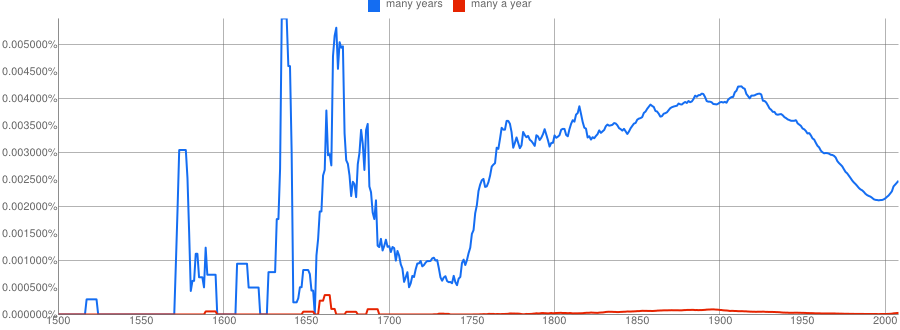so soon they were all seated at Beorn's table, and half had not seen such a gathering for many a year.
Why is many a year used? Should not many years be used?
What is the difference between many a year and many years?
so soon they were all seated at Beorn's table, and half had not seen such a gathering for many a year.
Why is many a year used? Should not many years be used?
What is the difference between many a year and many years?
"Many years" has always been the preferred and more grammatical usage:

"Many a year" as barbara points out is almost exclusively used as a poetic or stylistic variant, but in normal English you should use "many years" instead.
"many a year" is poetic or literary. It's not often used in everyday conversation, except for dramatic effect. (And then it probably calls attention more to the speaker than to the event being talked about.)